Memory

Life can only be understood backwards; but it must be lived forwards.
— Soren Kierkegaard
I recently misplaced one of my journals.
This precipitated a bit of a personal crisis; it is an important journal, you see.. I’ve kept a fairly consistent journal since my teens, and this particular volume held the elations, anxieties, and regrets of nine of the most transformative months of my life. I discovered it was missing while in the process of finishing a writing poem I began composing in the other journal. As I searched, a rising panic flooded my chest. To lose my journal is to lose a way of remembering, a way of marking who I am have been, and who I am becoming. How could I close this chapter of life without remembering how it began?
Memory profoundly shapes our sense of identity; who we are, where we come from, where we are going. It is fundamental, and it is flawed, inherently incomplete. How, then, can we truly know who we are?
To explore the power and weakness of memory, listen in to this week's podcast at the widget above, and follow along in the notes below.
Visual — Memento, by Christopher Nolanthe story of a man who cannot remember
Memory is not merely the recollection of individual facts, but the process of sense making through story telling.
Guy Pearce stars as a man who, a man who, as a result of a past trauma, has anterograde amnesia (the inability to form new memories) and has short-term memory loss approximately every five minutes. He is searching for the persons who attacked him and killed his wife, using an intricate system of Polaroid photographs and tattoos to track information he cannot remember.
Memento is presented as two different sequences of scenes interspersed during the film: a series in black-and-white that is shown chronologically, and a series of color sequences shown in reverse order (simulating for the audience the mental state of the protagonist). The two sequences meet at the end of the film, producing one complete and cohesive narrative.
Wikipedia (I know, I know. But it’s a solid summary)
WARNING: this film has mature content, violence, and is disturbing. While it makes an excellent point, I wouldn’t necessarily recommend watching it unless you feel ready to reckon with some heavy subject matter.Memento shows the deceptiveness of a conception of memory as collections of facts.In the movie, Lenny keeps meticulous records, tattooing “facts” on his body, using tricks and sticky notes to keep the facts about his wife’s murder straight. But without the ability to create new memories, stringing them together in a narrative, those collected “facts” are abused, manipulated, and rearranged, so that he becomes a murderer himself.

Lenny’s memory of his wife is his anchor to reality. His love, grief, and rage over her death reminds him that there is a reality outside of his ability to remember.
Love draws us completely out of our own heads, our own accounts of what is true, baptised in the overwhelming reality of the beloved. Love is the reality which exists outside of our ability to narrate our own identities and histories. This is reflected in Lenny’s final monologue.
I have to believe in a world outside my own mind.
I have to believe that my actions still have meaning.
Even if I can’t remember them.
I have to believe that when my eyes are closed, the world’s still here.
Do I believe the world’s still here?
Is it still out there?
Yeah.
We all need memories to remind ourselves who we are.
I’m no different.
Now, where was I?
— Memento
Memento Screenplay — Christopher Nolan
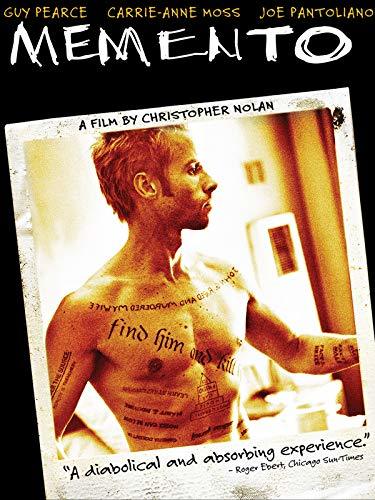
Memento
Starring Guy Pearce, Carrie-Anne Moss, Joe Pantoliano, Mark Boone Junior
What do we do when memory fails us? What if memory always fails us?
But of course, Lenny’s problem is that the subject of his love is dead. Without his memory, and without his wife, there is nothing which anchors him in the present. He is lost to himself and others. Self-knowledge is lost to Lenny. He is lost in a sea of facts which may not be facts that tell him nothing about himself.
The problem of memory and self knowledge (or identity) is one which a very different thinker wrestled with his whole life: Saint Augustine.
Conversion de Augustin, Fra Angelico
What is slipping through the present moment is my continuing performance of a song I have once learned
— Rowan Williams, On Augustine
God’s knowledge of me is available not as a picture I can grasp or as a piece of information, but in the form of trust in God’s love— faith, in other words. Such trust is grounded in and enabled by the history of Christ. And that history reveals a divine life of love which secures an eternal place for me within its pattern”
— Rowan Williams, On Augustine
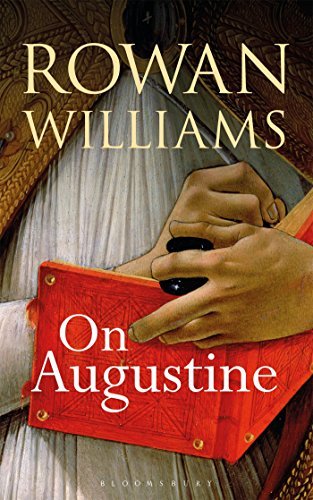
On Augustine
By Rowan Williams
2. Musical — West Side Story ScoreThe story of a city that cannot forget
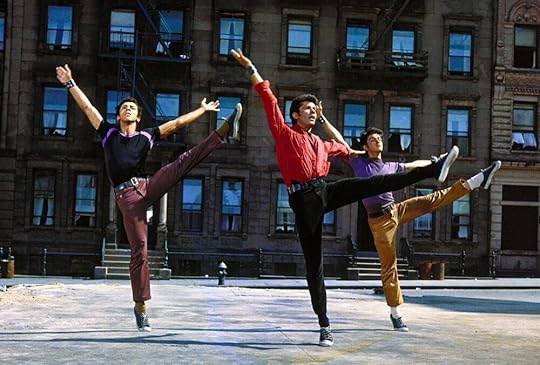
West Side Story (1961) retells the classic Shakespeare tragedy of Romeo and Juliet., exploring themes of love, violence, and (un)forgiveness.
Instead of the Montagues and Capulets, this classic musical follows the conflicts of two New York City gangs in the sixties: the Jets and the Sharks. The story follows the romance of two members of the rival immigrant gangs (one Polish, the other Puerto Rican). Between these two gangs exist grudges so deep they can hardly remember how they began, but so certain they refuse to forget. In the midst of these growing tensions, Tony and Maria begin to love each other. But can love grow if the violence of the past is not put to sleep?
To represent the tension of unresolved conflict, Berstein weaves the ominous tritone all throughout the score.
The Tritone: the Devil’s IntervalThe entire score of Leonard Bernstein’s famous score is based on the tritone, an interval so unsettling it has been called the “Devil’s Interval.” This tone begs to be resolved, and we as listeners feel uneasy until it is. In the story, this becomes an embodiment of the inability to resolve the love, violence, and hard feelings between the rival gangs the Jets and the Sharks.
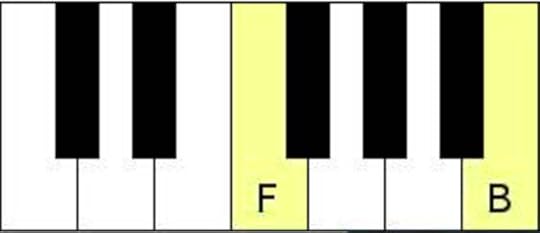
The most famous (and overt) use of the tritone in West Side Story can be found in the love song “Maria” whose unresolved hope foreshadows the tragic ending of the tale.For a fuller description of the score, check out this excellent video from the Carnegie Institute. The irresolution of the tritone becomes a living metaphor of what happens when trauma and anger lives on in the present instead of being put to rest in memory.
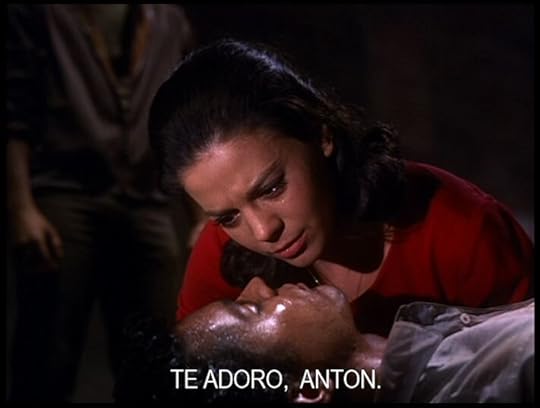
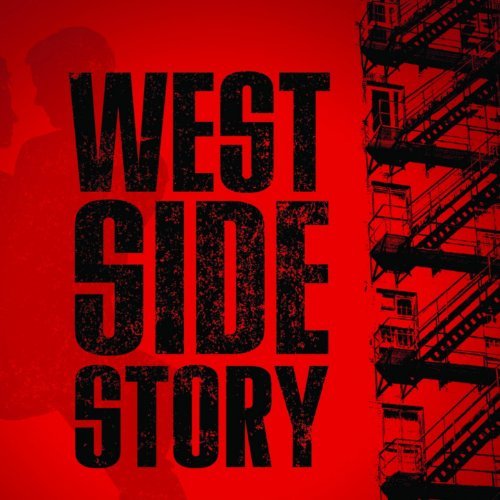
West Side Story (The Original Soundtrack Recording)
Original Master Tape
what happens when we cannot forget? when memory enslaves us?
Research on generational violence show that cycles of violence tend to continue generation after generation until the underlying trauma is addressed. Trauma is an inability to integrate an experience into memory. In his book The Body Keeps the Score Bessel Ven Der Kolk shows that the bodies of traumatized people react to the memory of trauma as though it were something happening in the present, manifesting all the physical responses of flight or fight as thought the trauma were present. As a trauma lives on with us in the present, we can never be free of the past. This explains why people and, indeed, communities can continue in cycles of trauma, unable to escape the grip of trauma which insists on repeating itself again and again. Memory becomes a trap, a prison. Healing comes when individuals are able to remember a traumatic experience as a bad thing that happened in the past.
One thing I do: forgetting what is behind and straining toward what is ahead, I press on toward the goal to win the prize for which God has called me heavenward in Christ Jesus.
— Philippians 3:14
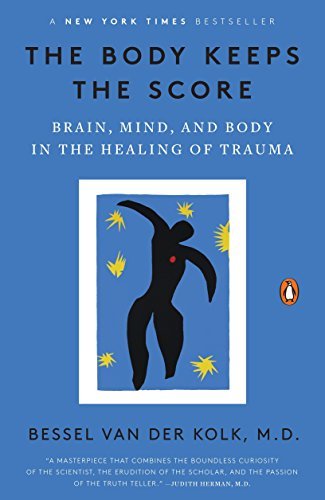
The Body Keeps the Score: Brain, Mind, and Body in the Healing of Trauma
By Bessel van der Kolk M.D.
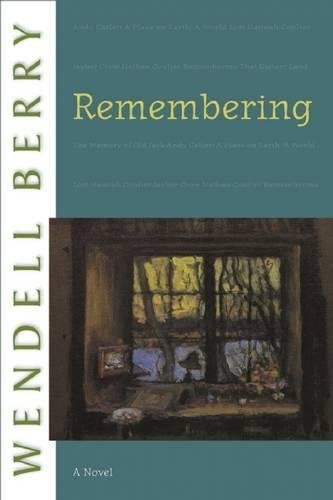
Remembering: A Novel (Port William)
By Wendell Berry
Andy Catlett has lost sight of who he is.
After a tragic farming accident resulting in the loss of his hand, he feels useless to his family and community. He leaves his wife and children to go to a farming conference, and possibly never to come back.
“He is held, though he does not hold. He is caught up again in the old pattern of entrances: of minds into minds, minds into place, places into minds. The pattern limits and complicates him, singling him out in his own flesh. Out of the multitude of possible lives that have surrounded and beckoned to him like a crowd around a star, he returns now to himself… He has met again his one life and one death, and he takes them back. It is as though, leaving, he has met himself already returning…meeting…a few dead and living whose love has claimed him forever. He will be partial and he will die; he will live out the truth of that. Though he does not hold, he is held. He is grieving, and he is full of joy.”
Wendell Berry, Remembering
Andy is drawn back from the brink of despair not by his own memory, but because he is remembered by others, held in the palm of someone else’s love. This ties back into Augustine’s understaniding of memory. As central as memory is, we cannot trust it. It is never final, whole. And so when it fails us, or fails to complete us, as it always will, the only comfort is to know that we are fundamentally held, remembered, in the mind of God. Andy is the opposite of Lenny— Lenny grasps desperately, but has nothing to hold onto. Andy lets go, turns away, and yet is held.
“If my identity is determined by the inaccessible but unfailing attention of God's love, the incarnation of the divine Word in Jesus is a declaration that this divine attention is in touch with us and transforming us through a particular worldly series of events transmitted by human telling, active in the present through the historical body of the Church.”
Rowan Williams, On Augustine
Our memories may be imperfect, our journals lost, but we can rest knowing that we are held in the mind of God.
Tune in next week for another episode!do you enjoy speaking with joy? consider supporting me on patreon!
Joy Marie Clarkson's Blog
- Joy Marie Clarkson's profile
- 227 followers



